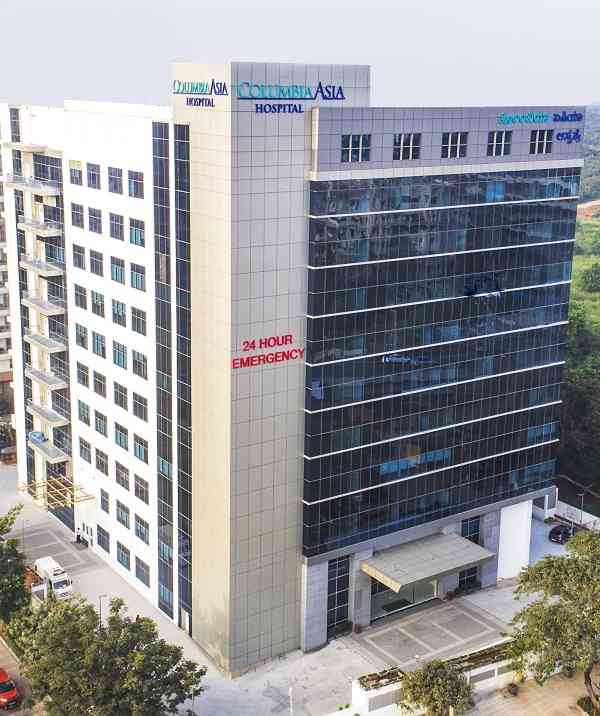Seizures are more than epilepsy – Be informed

By Dr. Advait Prakash Kulkarni, Consultant, Neurologist, Columbia Asia Hospital, Sarjapur Road (A unit of Manipal Hospitals)
A seizure is a sudden, uncontrolled electrical disturbance which occurs in the brain. It can alter your behaviour, motions, or sensations, as well as your level of consciousness. Though seizures are mostly associated with epilepsy, it is not necessary that everyone who experiences seizure have epilepsy.
There are different kind of seizures and it affects people in different ways. The symptoms and severity of seizures ranges from person to person. The type of seizure depends on where it starts in the brain and how far it spreads. The majority of seizures endure between 30 seconds and two minutes. A seizure lasting more than five minutes is considered a medical emergency. People with recurrent seizures are most commonly diagnosed with epilepsy.
Seizures can be dangerous when it occurs without an individual’s knowledge. If a person experiences episodes of seizure while driving or crossing the road, it can be life threatening. Fortunately, be it in epilepsy or seizures due to other condition, people who have experienced seizures earlier know the initial signs of the attack or when it is coming.
Anyone can experience seizures. It can occur as a result of a stroke, a head injury, a meningitis infection, or another condition. However, the exact cause of a seizure is mostly unknown.
The symptoms of seizure can range from mild to severe depending on the factors like type, age and location in the brain. Few common symptoms are:
• Confusion which is mostly temporary
• A staring spell
• Uncontrollable jerking movements of the arms and legs
• Loss of consciousness or awareness
• Cognitive or emotional symptoms, such as fear, anxiety etc
Seizures are generally classified as generalized and focal depending on how and where the abnormal activity in the brain started.
Focal seizures: The aberrant electrical activity in one part of your brain causes focal seizures. It may cause loss of consciousness or may not. It is again divided into 2 categories. Focal seizures with impaired awareness where an individual may lose awareness of their surroundings, look into space, and fail to respond normally in this situation. Hand rubbing, lip gestures, repeating certain words, and walking in circles are some examples. Another category is focal seizures without loss of consciousness where an individual does not lose consciousness, but the emotions or the way things seem, smell, feel, taste, or sound may change. Involuntary jerking of a body component, such as an arm or a leg, may occur as a result of these seizures.
Generalized seizures:
Generalized seizures are seizures that appear to affect all parts of the brain. It is divided into:
Absence seizure: It is mostly seen in kids where they stare into the space or may have symptoms like slight body movement, lip smacking, eye blinking etc
Tonic seizures: Tonic seizures cause stiffening of the muscles. These usually affects muscles in the back, arms and legs
Atonic Seizures: It can cause a loss of muscle control, which will in turn make you to suddenly collapse, fall down or drop your head.
Clonic seizures. It is associated with repeated or rhythmic, jerking muscle movements and can affect the neck, face and arms on both sides of the body.
Myoclonic seizures. It occurs as sudden brief jerks or twitches of your arms and legs.
If you notice warning signs of a seizure or suspect one is about to happen, the first thing you should do is make sure you are in a safe place.
• If you must drive, ask someone to accompany you or ensure that you are seated or lying down.
• Stop cooking or being near open flames.
• Climbing or heights should be avoided.
• If you have children, make sure you have someone to look after them when you are having seizure
• Swimming and water activities should be avoided.
• Lock the doors if you tend to wander or become disoriented during or after a seizure.
Consult a doctor immediately, if you observe following symptoms while experiencing a seizure.
• If the seizure last more than 5 minutes
• A second seizure occurs very quickly after the first
• If you are suffering from a high fever
• If you have developed heat exhaustion
• If you have been diagnosed with diabetes
• You have the tendency of hurting yourself during the seizure
Seizures can be dangerous. If adequate measures and precautions are taken it can be managed effectively.


 cityairnews
cityairnews 








